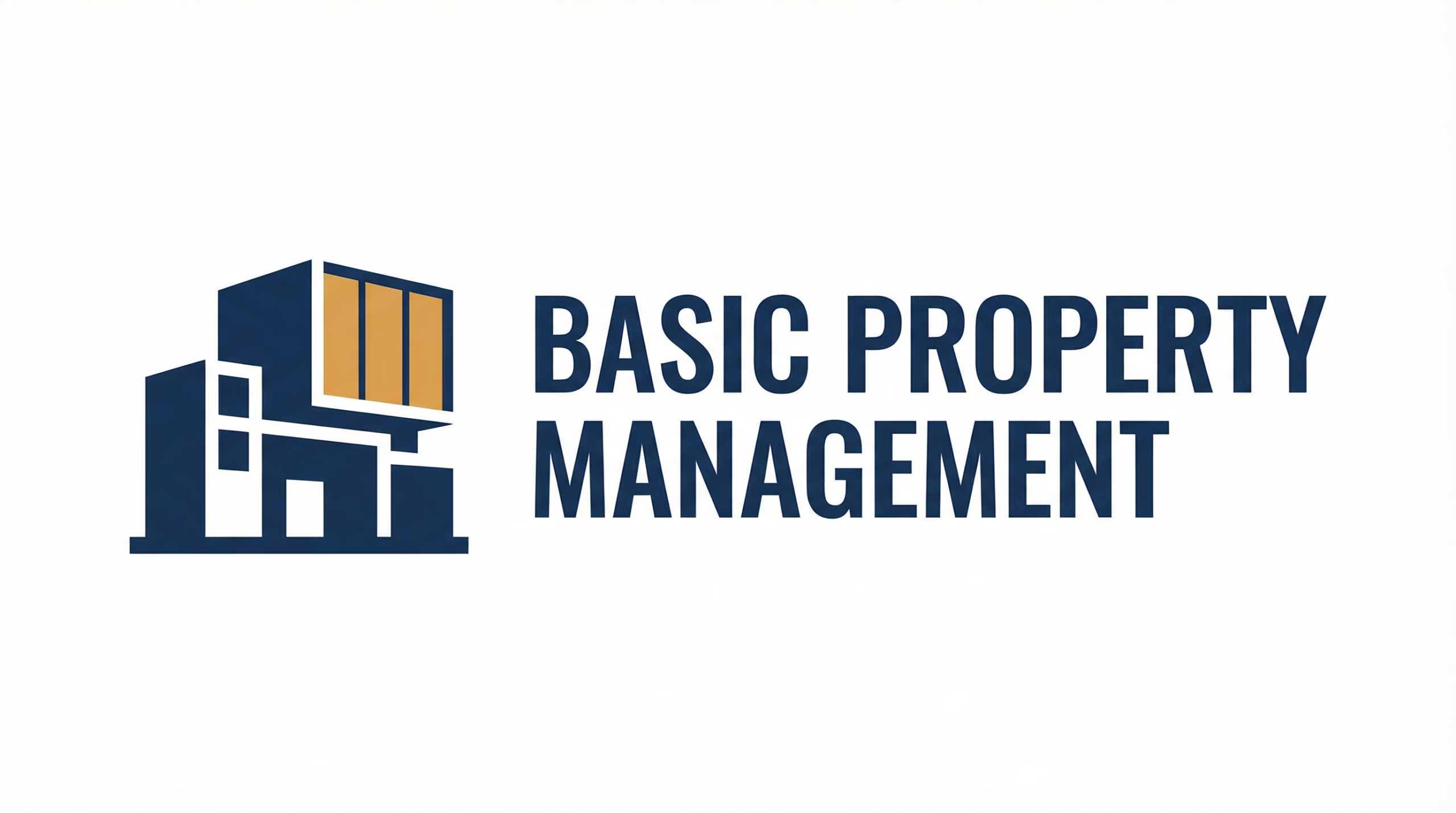Property Management for Landlords: How to Screen Tenants

Proper tenant screening is a critical part of managing rental property and protecting your investment. Knowing how to evaluate potential tenants gives you better control over leasing decisions and helps maintain a stable and safe rental environment for everyone involved.
You need to tailor your tenant screening process to the unique needs of your property and situation. By focusing on the right criteria and asking key questions, you can identify responsible tenants and reduce issues related to non-payment or property damage. For additional guidance, you can find practical tips for screening tenants online.
Key Takeaways
- Tenant screening is essential for effective property management.
- A clear process reduces risk for landlords and rental properties.
- Asking the right questions helps you select qualified tenants.
Why Tenant Screening Is Important
Tenant screening plays a key role in helping you make informed rental decisions. Verifying a tenant’s ability to afford rent with a credit check reduces the likelihood of missed or late payments. Careful examination of rental history can reveal past issues, such as property damage, that might indicate higher risk for your property’s condition.
By confirming a tenant’s identity, you protect yourself from fraud and maintain a secure rental environment. Key steps in a strong tenant screening process include:
| Screening Step | Purpose |
|---|---|
| Credit Check | Assess financial reliability |
| Rental History Review | Identify prior damages/issues |
| Identity Verification | Secure your property |
Clear tenant screening helps secure responsible, reliable renters. It also leads to fewer late payments, reduced turnover, and fewer incidents of property damage, creating a smoother management experience. For more on this, see the benefits of effective tenant screening for property management.
How To Create a Tenant Screening Criteria
Establishing tenant screening criteria helps you identify reliable renters and protect your investment. Define the type of tenant you want by considering employment status, income level, student status, or pet ownership. Clarity at this stage lets you tailor your approach to your specific property and neighborhood needs.
Research your local market and neighborhood demographics. Look at factors such as average income, typical rental prices, and property types in demand. This ensures your criteria match what qualified applicants are seeking and keeps your expectations realistic.
Build a clear tenant screening checklist with essential categories such as:
- Employment verification
- Minimum income requirements
- Credit score thresholds
- Rental history and references
- Pet policies
Use a simple table to organize your minimum standards:
| Screening Factor | Minimum Requirement |
|---|---|
| Employment | Full-time job or steady income |
| Income | 2.5x-3x monthly rent |
| Credit Score | 600+ or as needed |
| Rental History | Positive references |
| Pets | Allowed or not allowed |
Adding these requirements to your application process and communicating them upfront can reduce misunderstandings. For more comprehensive tips on screening, see a comprehensive guide to tenant screening in California.
Being consistent and objective in applying your criteria helps comply with fair housing laws and avoids discrimination. If you want to focus on attracting quality renters, you can look at common tenant turnoffs and ways to address them at find good tenants.
The Different Types of Background Checks You Can Run on Potential Tenants

When evaluating a tenant, you can use several types of background checks to ensure you are making an informed decision. Each check provides unique insights into a prospective tenant’s history and ability to fulfill rental obligations.
Credit checks reveal an applicant’s credit score and payment history, helping you gauge their financial responsibility. Look for any patterns such as late payments or outstanding debts.
Criminal background checks uncover any past convictions or criminal records. This step highlights any potential safety risks, allowing you to make choices that contribute to a secure living environment.
Employment verification confirms that the applicant is currently employed and earning enough income to cover the rent. Some landlords request recent pay stubs or contact employers directly to verify income and job stability.
Rental history examines previous landlord relationships. This review can spotlight any history of late rent, property damage, or eviction notices.
Identity verification is crucial for confirming that your applicant is who they claim to be. It typically involves checking government-issued IDs and cross-referencing details provided during the application process.
Here’s a summary in table format:
| Check Type | What It Covers |
|---|---|
| Credit Check | Credit score, payment history, debts |
| Criminal Background | Past convictions, criminal activity |
| Employment Verification | Job status, income, employer information |
| Rental History | Past rentals, evictions, payment records |
| Identity Verification | Identity proof, ID match |
Online services such as Apartments.com and My Smart Move allow you to access these reports conveniently and securely. Using these tools, you can make better decisions and help protect your property.
Questions To Ask During a Rental Interview
1. What is your full name?
Requesting the applicant’s full legal name is critical. This ensures you can properly check references, credit, and other background information. Names should match all provided documentation and identification.
Sample follow-up:
- Can you provide a photo ID for verification?
2. What is your current address?
Understanding where the applicant currently lives gives you context about their rental background. It can help you assess familiarity with the area or proximity to work and amenities.
Tip: Double-check the address during a background or reference check.
3. How long have you lived at your current address?
Stability is often reflected in how long someone resides at a location. Longer stays can signal reliability, while frequent moves might suggest instability.
| Length of Stay | Possible Indication |
|---|---|
| 2+ years | Stability, consistency |
| <1 year | Potential frequent moving |
4. Do you have any pets?
Knowing about pets is essential for property upkeep and to prevent issues with neighbors or other tenants. Ask for details about the type, breed, and number of pets.
You may also want to ask:
- Is your pet house-trained?
- Do you have references from previous landlords about your pet?
5. Why are you moving?
Reasons for moving can reveal a lot about a tenant’s situation. Listen for red flags such as eviction, disputes, or inability to pay rent. Valid reasons might include job relocation or the need for more space.
Valid reasons might include:
- Change in employment
- Family reasons
- Wanting to move closer to work
6. How many people will be living in the property?
Get an exact number of adults and children who will reside in the unit. Overcrowding can cause excessive wear and tear and violate local occupancy laws.
List to collect:
- Names and ages of all occupants
- Relationship to the applicant
7. What is your current employment situation?
Employment status is a key indicator of a tenant’s ability to pay rent. Inquire about employer name, position, and how long they have worked there.
Consider using this table for reference:
| Employment Type | Additional Questions |
|---|---|
| Full-time | How long in this position? |
| Part-time | How many hours per week? |
| Self-employed | Can you provide tax returns? |
8. What is your monthly income?
Ensure that the applicant’s monthly income is sufficient for the rent. Many landlords look for income that is at least three times the monthly rent amount.
Calculation:
- Monthly rent x 3 = Minimum recommended monthly income
Documentation to request: Recent pay stubs, bank statements, or employment contracts.
9. Do you have any past evictions?
A history of eviction can signal potential issues with rental payments or property management. Ask for details if the applicant discloses past evictions, and consider how long ago this occurred.
Follow-up questions:
- What were the circumstances?
- How has your situation changed since then?
- Can you provide references from more recent rentals?
10. Do you have any criminal convictions?
This question helps you evaluate any possible risks to your property and other tenants. It’s important to ask respectfully and follow all applicable fair housing laws.
For more best practice questions, see this collection of questions to ask a property management company.
Details to note:
- Type of conviction
- Year of conviction
- Any rehabilitation or community programs completed
Property Management for Landlords Bonus Tip: The Legalities of Tenant Screening

Federal Fair Housing
You must follow the Federal Fair Housing Act, which prohibits discrimination based on race, color, religion, national origin, sex, familial status, or disability. It’s illegal to reject applicants or treat them differently because they are part of a protected class. Disparate impact decisions—where a policy appears neutral but affects a protected group more than others—are also not allowed.
Include these protected categories in your screening checklist:
| Protected Class | Description |
|---|---|
| Race | Applicants of any racial group |
| Color | Skin color or shade |
| Religion | All religious beliefs |
| National Origin | Country of origin, ancestry, or ethnic background |
| Sex | Gender identity or biological sex |
| Familial Status | Presence of children or pregnancy |
| Disability | Physical or mental impairments |
Besides federal rules, state and local fair housing laws may add more protections.
Fair and Equal Treatment
Apply the same standards and pose the same questions to every applicant. Avoid subjective or inconsistent judgments about an applicant’s ability to pay rent or abide by your lease rules. Consistency helps you avoid accusations of discrimination and supports compliance with fair housing requirements.
Simple practices for fair treatment include:
- Use a written, uniform screening policy
- Document every decision made during screening
- Avoid personal questions not directly related to tenancy
HUD
The U.S. Department of Housing and Urban Development (HUD) provides up-to-date guidance, resources, and training for landlords about fair housing compliance. You can access federal, state, and local housing laws directly from HUD’s website.
HUD also offers training and webinars to help you and your team stay aware of legal changes. Bookmark www.hud.gov and check for new resources regularly.
NFHA
For additional support, the National Fair Housing Alliance (NFHA) offers education, training, and guidance on fair housing topics. NFHA serves landlords and tenants with clear information and operates a complaint hotline for reporting discrimination.
Visit their website at www.fairhousing.org to access training tools and learn best practices for compliance. Educational materials from NFHA can support your ongoing property management training and reduce legal risk.
Recommended Resources:
| Platform | Format | Link |
|---|---|---|
| Amazon | eBook & Paperback | Amazon |
| Books2Read | Multiple eBook Stores | Books2Read |
| Payhip | Payhip |
For ongoing learning and insights, you can visit the property management learning center. If you need tailored guidance, professional consulting services are also available. These actions help you stay prepared for unexpected repair needs and manage tenant relationships effectively.
Frequently Asked Questions
How can a property manager assist landlords with their rental properties?
A property manager handles daily property operations on your behalf. This includes marketing vacant units, screening tenants, managing leases, collecting rent, and coordinating repairs.
You can also rely on a property manager to deal with tenant communications, reduce vacancies, and ensure your property remains compliant with local regulations. For more about the range of services, see this guide to property management responsibilities.
What are the expected costs associated with hiring a property management company?
Typically, property management companies charge a monthly fee that can range from 8% to 12% of the collected rent. There may also be additional fees such as leasing fees, renewal fees, and maintenance markups.
| Service | Typical Fee Structure |
|---|---|
| Monthly Management | 8-12% of rent |
| Leasing Fee | 50-100% of one month’s rent |
| Lease Renewal Fee | Flat fee or % of rent |
What factors should landlords consider when choosing a property management company?
Key factors to consider include the company’s licensing status, reputation, service offerings, and experience with your type of property. It’s important to review the management agreement, communication practices, and tenant screening process.
How can landlords evaluate the performance of their property manager?
Regular performance reviews are recommended. Evaluate based on financial reporting accuracy, tenant satisfaction, vacancy rates, response time to maintenance, and adherence to budgets.
Consider requesting monthly or quarterly reports. Feedback from tenants can also provide insight. More details can be found in this article on assessing property management companies.
What legal responsibilities do property managers typically handle on behalf of landlords?
Property managers often take care of compliance with fair housing laws, lease enforcement, security deposit handling, and local safety ordinances. They can represent you in court for evictions and monitor adherence to landlord-tenant laws.
Properly licensed managers ensure your property remains within legal standards, reducing your risk of penalties or litigation.
What are the signs of a good property management company for landlords?
A reliable company communicates clearly, maintains low vacancy rates, provides detailed accounting, and responds promptly to maintenance requests. A commitment to transparency and regular inspections are also positive indicators. Check for positive client reviews, professional certifications, and a comprehensive service portfolio.
Wondering if you’re charging enough rent? Here’s how to know for sure!
Make data-driven rental property decisions with real-time market insights from RentCast.io. Use code BIGDEAL for 20% off your subscription!

Master the art of real estate investing with The Real Estate Property Management Guide: Premium Edition – your comprehensive roadmap to successful property management.
Whether you’re a novice investor or seasoned professional, this guide covers everything from selecting the right investment properties to tenant management and property marketing.
The author, Jeff Rohde writing as Jeffrey Roark, is a professional with over 25 years of real estate experience. This Premium Edition includes the valuable bonus book Investment Real Estate Analysis: A Case Study to help you identify hidden opportunities and evaluate properties like a professional.
Learn practical, actionable strategies for both residential and commercial properties, from single-family homes to office buildings and shopping centers.
Don’t just buy property – learn how to manage it successfully and maximize your investment potential.
Grab your copy now from your favorite bookseller:
- Amazon (Basic Edition, does not include Investment Real Estate Analysis: A Case Study)
- Books2Read for Apple, Barnes & Noble, Kobo, Scribed, and 8 more sellers with both eBook and paperback options available ((Premium Edition, includes Investment Real Estate Analysis: A Case Study)
- Payhip as a downloadable PDF (Premium Edition)
Ready to take your business to the next level?
- Subscribe to our newsletter
- Visit the learning center
- Learn more about our consulting services
